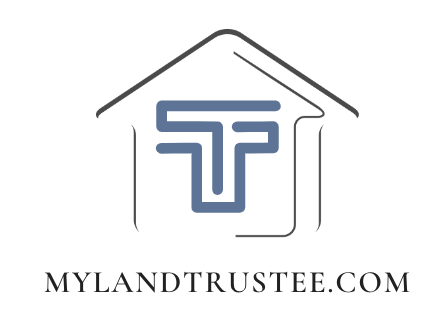|
|
|
|

Trust This.
By Joseph E. Seagle, Esq. ● Jun 03, 2022
Smart Brevity® count: 4 mins...1014 words
Mercury comes out of retrograde on Friday, so here’s to clearer communications and starting off June with good fortune 🤞 and 🌈 happy times.
Situational Awareness: If you’re closing during hurricane season (aka NOW), it’s best to bind hazard insurance coverage as early as you can after the Inspection Period ends. With tropical storms brewing on both sides of Florida right now, don’t be surprised if insurers stop binding new policies until these storms have blown over.
|
|
1. Equity financing without a mortgage

Clients have asked me to review home equity sharing plans. These are not loans but are equity-sharing arrangements between the homeowner and a third party who “buys” a portion of the homeowner’s equity in the home.
Why it matters: Mortgage interest rates are increasing steadily, so homeowners are looking for creating ways to cash out home equity without onerous monthly payments and closing costs.
Companies such as Unlock, Hometap, Point, and Unison will pay homeowners a lump sum payment in exchange for an agreement for a share of the home’s existing equity.
-
The agreements are typically for 10 to 30 years and provide the company with a percentage of the future sales price of the home.
-
No payments or interest, but the homeowner must buy out the company’s equity before the end of the agreement.
-
Two typical ways to pay it back: 1 - pay back the initial amount plus an agreed-upon portion of the appreciation; or 2 - pay back a portion of the new appraised value of the home.
-
If the property depreciates in value, the company eats the loss, much like an investor in stocks can lose principal if the value of the stock drops.
-
Some of the companies will pay on a credit score as low as 500, but they all require a home inspection and an appraisal.
-
Some of the companies will provide payouts as low as $5,000.00 and up to $600,000.00, but they do not operate in all states.
-
Agreements address maintenance, renovations, and property taxes.
Our thought bubble: With mortgage interest rates increasing, equity sharing agreements could become popular. Those who understand them will be ahead of the game.
|
|
2. No more security deposits?

Companies are springing up to provide alternative solutions for tenants having to make security deposits for their rentals.
Why it matters: Security deposits are often at least several hundred dollars. Landlords hold them in a separate escrow account where it sits for the term of the lease, only to be used if the tenant breaches the lease or damages the property beyond normal wear and tear. The deposits are often a financial hardship for tenants to cover and a bit of an accounting headache for landlords.
Yes, but: The companies’ solutions are aimed at supporting landlords and property managers. Helping tenants is a side effect.
Florida’s legislature considered a bill that would have given landlords and tenants the option of waiving security deposits in favor of a flat non-refundable payment to “prepay” for damages. It didn’t pass.
Some of the players:
-
Obligo: the tenant pre-sets a binding amount that the landlord can draw on automatically to pay for damages. The tenant pays a monthly fee to the company for the service; landlords pay nothing.
-
SureDeposit: the tenant pays a one-time fee to buy a surety bond in favor of the landlord. If the landlord can’t collect for damages from the tenant, they can collect on the bond. Tenants are still ultimately responsible to repay the bond company for its losses in any event.
-
TheGuarantors and Rhino: these are lease-performance insurance. The tenant pays a premium to purchase an insurance policy with the landlord as the loss payee for the term of the lease agreement. Rhino can also provide a lease guaranty for a higher premium.
Our thought bubble: as rents increase, tenants and landlords must get creative. Statutes and case law answer a lot of questions about traditional security deposits. These new products are untested in the courts.
|
|
-
Annual average rent increase of 25% is not an “emergency” justifying rent control measures in Orange County, according to a report by GAI Consultants to the Orange County Commission. Orlando Sentinel - Subscription
-
Credit Karma released a report of the top 20 states with the lowest taxes and five states with the highest. Florida wasn’t number 1 on either list. Realtor Magazine
-
Imagine sitting at a virtual closing table, signing virtual documents, and having the transaction registered on the blockchain in a future real estate closing. The metaverse and blockchain are two of the hottest topics in real estate. National Mortgage Professional
-
A Kissimmee mortgage loan officer faces 30 years in prison for charges of fraud. National Mortgage Professional
-
Mashvisor is a new app on the market, targeted at real estate investors to help them find and evaluate potential buy-and-hold properties. Popular Science via Apple News.
|
|

Flags up on the boat dock? Check.
This week is the kickoff for hurricane season and the start of Pride Month. While June is the official 🏳️🌈 Pride Month, 🏳️🌈 we’re proud of our place in the community year-round.
The bottom line: We embrace the diversity of our crew members, our customers, and our referral sources, living one of our core values every day: “Be nice.”
And with that, of course, the songstress taking up space in my head this week is Ms. Diana Ross. May your month, and every month, be full of pride ☮️.
|
|
We hope you found this helpful — any feedback is appreciated and can be shared by hitting reply or using the feedback feature below.
Be on the lookout for our next issue! 👋
|
|
|
|
Was this edition useful?
 

Your responses are anonymous
|
|
|
Powered by

|
|
|













